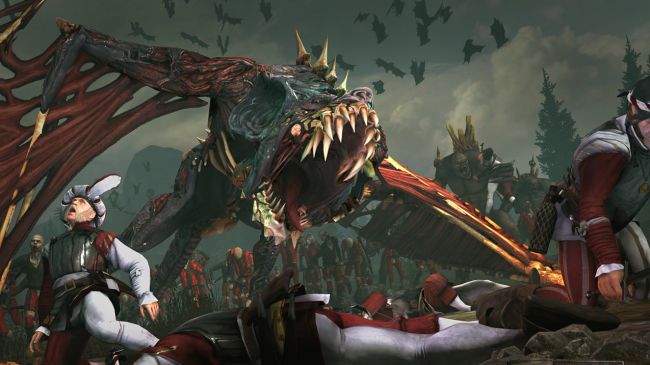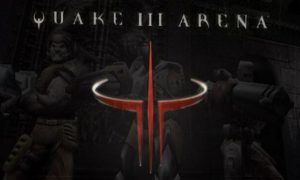The definitive war of the worlds
Deciding the greatest Total War games is tricky. Maybe it’s because the Notion of’best’ depends on the type of mood you’re in–I play with them on rotation, influenced by all of books, movies, or other games I’m consuming at the time. Seeing the Battle of the Hornburg makes me crave Total War: Warhammer; studying about the crusades make me yearn for Medieval 2. All these are’texture’ games, which meet cravings past the need for sharp plan or battles. They allow you to twist background, produce new stories, or roleplay as your favorite generals.
There’s Also prized little to separate them, especially at the top end of this order. The factors which make the show a success can be found in each match, and it is often only the strength of this setting which sets the games apart. There are apparent outliers–Empire and Napoleon feel as they’re from a different world –but all of them offer the same mixture of conflict and conquest, domination and failure.
10. Rome two
It says heaps about Total War that the lowest entry with this listing Is not a poor game–it is just not like people hoped. The still-excellent original place a high bar, but that wasn’t the only issue: Rome two had a faulty launch and played like an uneasy transition into a more advanced system. Because of that, it is a game.
Truthfully, The game’s reputation is a little unfair–that the several bugs and wobbly AI have been patched, and once it works, it is as deep and rewarding as any other Total War. I also has an amazing selection of unique factions, making this feel like one of the most plentiful entries in the series, though not the most admired.
9. Medieval
There is still plenty to appreciate about Medieval, however much of it’s been refined and enhanced in the sequels. It bravely expands the scope of the, adding elements such as loyalty, faith and espionage, and because of this it seems just like a deft representation of this brutal, disruptive setting. It’s also the game that actually nailed the’feel’ of Total War’s combat system–glistening armour, traces of armoured troops smashing into one another, rousing music and improved graphics. It clearly looks simplistic when compared to recent games but the impact at the time can not be underestimated. Shogun began it all and Rome elegant it but Medieval enlarged the series in a way that belies the simple presentation.
8. Shogun
Like the very first Medieval match, Shogun isn’t low on this list because It’s because it feels like a thing from a different era, although poor. It also suffers from a sequel that stands out as one of the most striking and compelling entries in the sequence. But despite this, the original Total War game has moments that linger in the brain years after you first played it–things like charging into positions of spearmen using a Kensai sword saint, or the dire crackle of doomed musketeers resisting a cavalry charge.
If You Would like to play a Total War game place in Feudal Japan you’re a lot more likely to play with the sequel, but that is worth playing posterity–a gorgeous, stirring photo of the show that followed.
7. Empire
There was much that would have gone wrong Other than melee units, the flimsiness of ranked rifle fire, the specificity of naval battle –but it did an admirable job of incorporating systems which were alien to some match formerly about hammering battle and cavalry charges. It happened until Napoleon for those creases to be ironed out. The AI is feeble and the scale and extent could be upsetting for anyone stepping up from Medieval 2, but it’s still an incredible achievement. It embraces concepts that would not be possible in previous matches, and the tech trees have a much more direct influence on the game (and there is something hopeful about the abolition of slavery being the ultimate expression of enlightenment).
The battles lack The muscular effect of melee focussed Total War games, however, the noise of cannon roaring on a crowded battlefield is still exhilarating. And one final, very minor thing: the theme tune from the primary menu is amazing .
6. Napoleon
Napoleon takes everything Empire did nicely and refines it, Streamlining and enhancing the best pieces of its sprawling, frequently flabby predecessor. But it’s more than just a mere improvement: Napoleon signifies Creative Assembly learning how to properly apply a narrative to an emergent game. The game is a testament to Bonaparte’s brilliance, and the conquests are essential since they’re conducted together with humanity and impartiality.
As Well like a superb Total War game, it is a fascinating method of delving into a turning point in Europe. You get to experience the triumphs and failures of an incredible military thoughts, and it’s an unusual, often moving manner of seeing something that still echoes through history. Experiencing huge conflict through the eyes of a couple individuals makes this kind of humbling, brilliant, utterly essential encounter.
5. Attila
The most characterful moments from classic Total War matches usually Happen organically–the courageous mercenary army on the edge of your empire, the feckless offspring of crusading generals. Attila is the first successful attempt to weave these stories into the match itself. It almost makes Total War that a misnomer. It is not only about fighting: Attila is sport of politics, feasting, famine, desolation, and migration, place during one of the very delicate and fascinating periods of history–Europe still feels just like an unformed idea, ready to be shaped or smashed as you see fit.
It also does a Fantastic job of folding More complex components, like weather and guerilla warfare–ideal for anyone more used to the simple clarity of sooner Total Wars. And like Warhammer, everything you do will be under the shadow of a gathering storm: it is not if Attila and his Hunnic army will arrive, but if. A brutal, unforgiving and wonderfully complex approach Total War game.
4. Rome
Rome was the first game in which the scale of this battle completely overwhelmed me. I would pause every elephant fee to enjoy the effect; chase down each fleeing slinger just to view them stampeded. It was also the first taste of that which remains my favourite element of this series: the specific conflicts that appear in every game, when you along with a rival faction push at each other’s boundaries until the dam breaks and you flood in their land. It helps that the atmosphere is familiar to anyone who’s researched history (or see Asterix).
It is instantly and Deeply gratifying, and the only thing better than driving the Roman war machine across the Europe and beyond are defying history and withstand it. Chuck in the savagely unforgiving Barbarian Invasion–the only Total War game which compelled me to become a Roman vassal–and you have the very best case of this time frame in the collection.
2. Total War: Warhammer
The Best Total War moments come from seesawing conflict, where Old forces drop and new ones replace them. The prevalence of those moments in Warhammer is what justifies the large spot. It’s a grasping battle for survival that distills the best pieces of this show, and it’s made more vibrant with a wealthy, reliable low-fantasy setting. The conflicts feel enormous, but it’s the looming threat of Chaos that make every match into a desperate narrative –when they eventually arrive arrive, races scramble into delicate alliances and every failed invasion feels just like a gasp for air. It’s also the most varied Total War: every race has been eased to Total War’s systems with meticulous attention, and they’re different enough to make this feel like a massively generous match (if you are willing to forgive Chaos pre-order nonsense, that is).
It is not perfect–the Campaign pacing is off, meaning grand victories can feel like a wafting afterthought accompanied by a sprawl of unreadable stats–but it is gaming’s greatest representation of a Warhammer universe that no longer exists.
Read our overview of Total War: Warhammer and check out our favorite Total War: Warhammer mods.
3. Medieval 2
Medieval 2 owes an unquestionable debt into the games that came before It, but it has something magical that sets it apart from its predecessors. It is an exemplary setting for a entire War game–a period of conquest, crusades, and corruption, with enough stability to make each faction relatable and emboldening opportunities for invasion and expansion. Your location in the world makes each game unique. Play as England and the temptation to reach out and conquer your neighbors is irresistible; drama as Egypt and you’ll realise how shitty it is when barbaric Christians predict crusades against you for no reason.
In Kingdoms, in addition, it has a wonderful expansion that focusing on historic flashpoints and provides nuance and detail into the sweeping conquests of the main game. The AI may be tender at times, but it’s still a barbarous challenge when the Mongols turn up. And when it is still too easy for you, an incredible selection of mods breathe extra life into an already comprehensive sport: Stainless Steel and Broken Crescent are both still essential today.
2. Total War: Warhammer 2
The sequel manages to surpass Total War: Warhammer using its vortex effort and inventive factions. The large elf forces would be the most traditional, but they capture dragons and magic. The lizardmen have the very colourful forces of this series so far, and the skaven are a brilliantly sneaky faction who bring up reinforcements out underground. The map layout tends towards more interesting campaigns compared to the large continent of Total War: Warhammer 1. Dinosaurs vs. rats vs. elves vs bad elves, what’s not to love? Bespoke add-on campaigns such as the excellent Curse of the Vampire Coast have made the game feel more powerful and more imaginative than it did at launch.
1. Shogun 2
You can find several other games on this list with more components, greater extent, And grander configurations, but Shogun two is Creative Assembly at its cohesive best. Globetrotting conquest is substituted with a frenzied battle to unify Japan, but it never feels small. Rather, the narrow focus makes Shogun 2 a rich, wholly immersive experience, using a great campaign in one of the funniest periods in the set. Additionally, it fixes many conventional Total War problems. The AI has learned how to use boats and develops sharply on higher difficulty levels. Clans feel distinct.
And, Best of all, The Shogun can declare you an enemy if you get to Strong, preventing you Over factions one-by-one, you must protect the resources you’ve Spent some time compiling. It’s also designed, meaning new Players may easily adopt its systems while Total War vets can sit back And let this gorgeous, brilliantly-plotted game provide all of the moments Which make us adore the series.











